Applying sunscreen on your face is an easy and low-maintenance way to protect your skin from the sun’s harsh rays. If you skip this step regularly, however, you run the risk of both short- and long-term damage. Though you may be tempted to only apply sunscreen when you’re outdoors, you should still wear it inside if you’re sitting near a window or utilizing smart devices that emit blue light, according to the dermatologists we consulted.
“Wearing sunscreen is one of the most important things you can do for your skin,” says Dr. Corey L. Hartman, a board-certified dermatologist and founder of Skin Wellness Dermatology in Birmingham, Alabama. “I recommend to all my patients that they should be using antioxidants, retinol and sunscreen every day as part of what I call the ‘Holy Trinity’ of skin care.”
SKIP AHEAD Best face sunscreens to shop | What is SPF and why is it important? | How to shop for face sunscreen | Chemical vs. mineral sunscreens | How much sunscreen do you need to apply? | How often should you reapply face sunscreen? | Can you use face sunscreen on your body?
But finding the right sunscreen for your skin type can be a challenge with so many formulations and types of face sunscreens on the market. We asked 10 dermatologists about how to shop for face sunscreens and their product recommendations.
Our top picks
How we picked the best face sunscreens
We spoke to dermatologists about the formulations, ingredients, minimum SPF and other factors to consider when choosing a facial sunscreen. The experts we spoke to recommend you keep in mind the following:
- Mineral vs. chemical sunscreen: Mineral sunscreens, also known as physical blockers, contain zinc oxide or titanium dioxide (sometimes both) and sit on top of the skin to block rays from penetrating the surface — this makes them less likely to cause irritation if you have sensitive skin. Chemical sunscreens, which rely on chemical filters like oxybenzone, avobenzone and octinoxate, are absorbed into the skin, which makes them more cosmetically elegant since they don’t cause a white cast.
- SPF protection: Dermatologists agreed you should look for a minimum SPF 30 rating, with SPF 50 or higher as the ideal amount of sun protection.
- Ingredients: Scan the ingredients list for ones that may cause irritation, like fragrances and botanical extracts. Also, consider ingredients that target certain skin care concerns, like hyaluronic acid or dimethicone for dry skin, and niacinamide and vitamin C to brighten your complexion and soothe redness or irritation, according to Dr. Zakia Rahman, board-certified dermatologist, clinical professor of dermatology and director of the Resident Laser and Aesthetic Clinic at Stanford Health Care.
- Consistency and formulation: Sunscreens are commonly formulated as lotions, sprays, creams, powders or gels, according to the experts we spoke to. Consider your skin type when choosing a face sunscreen. Lotions and gels may be best suited for sensitive skin since they’re easier to spread and rub into the skin, which reduces the likelihood of a friction reaction, says Hartman. Powder sunscreens are lightweight and may help reduce shine associated with oily skin (and are usually easier to reapply throughout the day), while thicker creams can have hydrating ingredients, like emollients and humectants, for those with dry skin, according to Dr. Hadley King, a board-certified dermatologist based in New York City.
Best face sunscreens to shop
To narrow down the best face sunscreen options, we rounded up expert-recommended sunscreens and Select staff favorites that work for a variety of skin types and concerns.
Best face sunscreen overall: Cay Skin
Cay Skin Isle Glow Face Lotion SPF 45
This tinted face lotion from Cay Skin is a Select Wellness Award winner for face sunscreen. It offers SPF 45 protection and is formulated with niacinamide to brighten the skin and plant-based nectar to keep it from drying out, according to the brand. This tinted sunscreen doesn’t leave a white cast on darker skin or cause any issues with pilling under makeup as many sunscreens do, says Select social commerce editor Sadhana Daruvuri. “I was able to apply it in seconds with barely any blending, and it also gave my face a healthy glow,” she says.
The formula is noncomedogenic, meaning it won’t clog pores. This is a chemical sunscreen that contains avobenzone and other chemical filters, which might irritate sensitive or acne-prone skin, experts told us.
Type: Chemical | SPF: 45 | Active ingredients: Avobenzone, octisalate, octocrylene | Consistency: Lotion | Water-resistant: No
Best affordable sunscreen: Coppertone
Coppertone Face Sunscreen SPF 30
If you’re on the market for a more affordable face sunscreen, this option from Coppertone provides SPF 30 protection and has an oil- and fragrance-free formula. “I love this sunscreen for my dry skin because it’s not greasy, doesn’t sting or cause breakouts and it feels lightweight when I put it on,” says Select senior social media editor Rosalie Tinelli, who keeps a small tube of this sunscreen in her purse at all times to prevent sunburns.
Type: Chemical | SPF: 30 | Active ingredients: Avobenzone, homosalate, octisalate, octocrylene | Consistency: Lotion | Water-resistant: Yes (up to 80 minutes)
Best sunscreen for sensitive skin: ISDIN
Isdin Eryfotona Actinica Mineral Sunscreen SPF 50+
The Isdin Eryfotona Actinica sunscreen comes recommended by multiple dermatologists, who use it in their own daily skin care routines. Hartman recommends this sunscreen to his patients with sensitive skin because it “delivers moisture and [is a] chemical-free, mineral sunscreen,” he says. It has a lightweight, non-greasy formula, which makes it great for all skin types, and it is easy to apply under makeup because it doesn’t leave a greasy finish or a white cast, according to Dr. Marisa Garshick, a board-certified dermatologist at MDCS Dermatology in New York City.
Type: Mineral | SPF: 50+ | Active ingredients: Zinc oxide | Consistency: Emulsion | Water-resistant: Yes (up to 40 minutes)
Best sunscreen for oily skin: Eucerin
Eucerin Oil Control Sunscreen SPF 50
Eucerin’s Oil Control Sunscreen is a great option for those with oily skin because it contains oil-absorbing minerals that leave a matte finish, according to Dr. Joshua Zeichner, director of cosmetic and clinical research at Mount Sinai Hospital. In addition to broad-spectrum SPF 50 protection, this sunscreen is formulated with a proprietary antioxidant blend of vitamin E and vitamin C to help brighten your skin tone, according to the brand.
Type: Chemical | SPF: 50 | Active ingredients: Avobenzone, homosalate, octisalate, octocrylene | Consistency: Lotion | Water-resistant: Yes (up to 80 minutes)
Best sunscreen for dry skin: Cerave
Cerave Hydrating Mineral Tinted Sunscreen SPF 30
This mineral Cerave sunblock includes hyaluronic acid to provide moisture, ceramides to help support the skin’s natural barrier and niacinamide, a form of vitamin B3 that can calm irritated skin and is known for its anti-inflammatory effects, according to Garshick. She also likes that it combines SPF 30 with a sheer tint, offsetting the white cast you would normally get with a mineral sunscreen. It’s noncomedogenic and free of oils and fragrances, which makes it a great option for acne-prone and sensitive skin, too.
Type: Mineral | SPF: 30 | Active ingredients: Zinc oxide and titanium dioxide | Consistency: Lotion | Water-resistant: No
Best sunscreen for acne-prone skin: Neutrogena
Neutrogena Clear Face Liquid Lotion Sunscreen SPF 50
One of our favorite sunscreens for acne-prone skin, this lotion is specifically formulated for those with acne-prone skin, according to Zeichner. It’s oil- and fragrance-free, lightweight and noncomedogenic, so you won’t have to worry about clogged pores that might worsen acne.
Type: Chemical | SPF: 50 | Active ingredients: Avobenzone, homosalate, octisalate, octocrylene | Consistency: Lotion | Water-resistant: Yes (up to 80 minutes)
Best sunscreen for rosacea-prone skin: EltaMD
EltaMD UV Clear Face SPF 46 Sunscreen
The EltaMD UV Clear Sunscreen is a favorite among our experts and Select staff. It’s free of heavy, pore-clogging moisturizers and contains niacinamide, which acts as a natural anti-inflammatory ingredient. I’ve tried multiple sunscreens in the past, and this is the only one that doesn’t cause my rosacea to flare up. Select’s managing editor Leah Ginsberg uses this sunscreen on her sensitive, rosacea-prone skin every day following her dermatologist’s advice. “I love the texture, and it never burns my eyes if I sweat,” she says. Dr. Robyn Gmyrek, a board-certified dermatologist at UnionDerm in New York City, recommends this sunscreen because it “dries quickly, so you can slather it on your face, neck and chest before getting dressed all year-round.”
Type: Mineral and chemical | SPF: 46 | Active ingredients: Zinc oxide, octinoxate | Consistency: Lotion | Water-resistant: No
Best sunscreen for combination skin: Starface
Starface Clear As Day SPF 46
Starface’s Clear As Day sunscreen is another favorite of Select’s Daruvuri, who has combination skin and tried multiple sunscreens for Select’s Wellness Awards coverage. “It goes on perfectly clear, and it doesn’t leave any sort of white cast. It’s also super lightweight, doesn’t look greasy and it has a nice, silky feeling,” Daruvuri says, adding that the sunscreen doesn’t cause any irritation and never appears cakey when she applies it on top of breakouts. The gel sunscreen has a matte finish, is noncomedogenic and includes hydrating ingredients like glycerin.
Type: Chemical | SPF: 46 | Active ingredients: Avobenzone, homosalate, octisalate, octocrylene | Consistency: Gel | Water-resistant: Yes (up to 80 minutes)
Best sunscreen lotion: Cerave
Cerave AM Facial Moisturizing Lotion
Select reporter Harry Rabinowitz started using this SPF moisturizing lotion from expert-recommended brand Cerave after doctors and friends recommended he use sunscreen every day, regardless of the weather. “I’ve used it every morning on my face for over a year now. I like how light the formula is, and that it comes in a travel-friendly pump bottle that dispenses just the right amount for my face,” he says. This oil-free, noncomedogenic lotion contains hyaluronic acid to hydrate the skin, ceramides to help restore the skin’s barrier and niacinamide to help calm skin irritation and redness, according to the brand.
Type: Mineral and chemical | SPF: 30 | Active ingredients: Homosalate, octinoxate, octocrylene, zinc oxide | Consistency: Lotion | Water-resistant: No
Best sunscreen gel: Supergoop!
Supergoop! Unseen Sunscreen SPF 40
The Supergoop Unseen Sunscreen comes recommended by Dr. Michele Farber, a board-certified dermatologist at Schweiger Dermatology Group, because of its lightweight formula, broad-spectrum UVA/UVB and infrared protection and blue light filter. The gel consistency, which provides a natural finish on the skin, also doubles as a face primer to use underneath makeup, according to the brand. If you’re looking for a tinted sunscreen option, Select editor Lindsay Schneider loves the Supergoop Glowscreen Sunscreen, which also provides SPF 40 and doesn’t feel heavy or tacky on the skin. “The tint makes me look more put together on days where I don’t want to wear makeup — it gives you a nice healthy glow versus a ghostly white cast,” says Schneider.
Type: Chemical | SPF: 40 | Active ingredients: Avobenzone, homosalate, octisalate, octocrylene | Consistency: Gel | Water-resistant: Yes (up to 40 minutes)
Best powder sunscreen: Colorescience
Colorescience Sunforgettable Total Protection Brush-On Shield SPF 50
This expert-recommended brush-on powder sunscreen is a convenient way to apply it over makeup throughout the day — in fact, Dr. Rachel Westbay, a board-certified dermatologist at Marmur Medical in New York City, says she keeps this sunscreen in her purse at all times. The tinted sunscreen is available in four shades: deep, tan, medium and fair. It’s also fragrance-free, noncomedogenic and formulated with iron oxide to provide blue light protection and hyaluronic acid to help hydrate the skin, according to the brand.
Type: Mineral | SPF: 50 | Active ingredients: Titanium dioxide, zinc oxide | Consistency: Powder | Water-resistant: Yes (up to 80 minutes)
Best tinted sunscreen: La Roche-Posay
La Roche-Posay Anthelios Tinted Face Sunscreen SPF 50
Farber recommends this tinted mineral sunscreen from La Roche-Posay because it’s lightweight and has a matte finish. It’s also oil-free, fragrance-free and noncomedogenic, making it a great option for sensitive, oily or acne-prone skin. It’s also formulated with antioxidant-rich senna alata leaf extract and soothing thermal spring water to protect your skin from free radicals caused by UV rays, according to the brand.
Type: Mineral | SPF: 50 | Active ingredients: Titanium dioxide | Consistency: Lotion | Water-resistant: Yes (up to 40 minutes)
Best sunscreen compact: Avene
Avene Mineral Tinted Compact SPF 50
This Avene mineral sunscreen compact offers a tinted, cream-to-powder formula that is a staple in board-certified cosmetic dermatologist Dr. Gabriela Soza’s makeup bag. “I suffer from melasma, and it contains more than 3% iron oxide, which offers protection against blue light and can prevent melasma and dark spots from getting worse,” she told us in our guide to dermatologist-recommended skin care routines. It is also great for sensitive skin due to its mineral-based formula, won’t clog pores and includes vitamin E to soothe any skin irritation, according to the brand.
Type: Mineral | SPF: 50 | Active ingredients: Titanium dioxide, zinc oxide | Consistency: Cream-to-powder | Water-resistant: Yes (up to 40 minutes)
Best reef-safe sunscreen: Project Reef
Project Reef Mineral Sunscreen SPF 50
This option from Project Reef is a reef-safe mineral sunscreen, meaning it isn’t formulated with chemical filters like oxybenzone and octinoxate that have a negative impact on coral reefs. And with every purchase, Project Reef removes 1 pound of plastic from the world’s oceans and helps support reef restoration initiatives in Hawaii.
This is the sunscreen Select’s associate commerce editor Nishka Dhawan packed for her recent trip to Punta Cana. “I used a generic sunscreen on the first day of our trip and got sunburnt — this one prevented that [for the rest of the trip] and left us with a great tan instead,” she says. Dhawan likes that it rubs easily into her skin and doesn’t feel sticky or oily. “It’s also water-resistant, so I didn’t have to reapply it as often even on the sunniest days,” she says.
Type: Mineral | SPF: 50 | Active ingredients: Zinc oxide | Consistency: Lotion | Water-resistant: Yes (up to 80 minutes)
Best sunscreen for outdoor workouts: Kinfield
Kinfield Daily Dew SPF 35
The Kinfield Daily Dew face sunscreen is a favorite of Select’s associate updates editor Zoe Malin, who wears it while she runs. “It’s sweat- and water-resistant for up to 80 minutes, so I can go on an hour-long run and not worry about reapplication,” she says. Formulated with glycerin, sea kelp and aloe vera, the sunscreen leaves a dewy finish and is designed to keep your skin hydrated and moisturized, according to the brand. Malin says it also doesn’t irritate her skin or cause breakouts in the summer while she sweats.
Type: Mineral | SPF: 35 | Active ingredients: Zinc oxide | Consistency: Lotion | Water-resistant: Yes (up to 80 minutes)
Best hydrating sunscreen: RoC
RoC Multi Correxion Hydrate + Plump Daily Moisturizer SPF 30
This sunscreen-and-moisturizer combo from RoC comes recommended by Zeichner for those with dry, sensitive skin. It includes hyaluronic acid, which can help deliver moisture for up to 72 hours, and a transparent water-gel formula that absorbs quickly and doesn’t leave a white cast, according to the brand. “It provides broad-spectrum protection against both UVA and UVB rays in an ultralight formula that can be layered under makeup,” says Zeichner.
Type: Chemical | SPF: 30 | Active ingredients: Octocrylene, ethylhexyl salicylate, homosalate, avobenzone | Consistency: Cream | Water-resistant: No
What is SPF and why is it important?
The American Academy of Dermatology and the dermatologists we spoke to recommend everyone wear sunscreen to help protect their skin from the sun’s ultraviolet rays to prevent long-term damage. People who have higher UV exposure over time are at increased risk of all forms of skin cancer, including keratinocyte cancers and melanoma, according to Dr. Amy McMichael, board-certified dermatologist and professor of dermatology at Wake Forest University School of Medicine.
Our experts, as well as the AAD, recommend wearing sunscreen with a minimum SPF 30 rating because it can block up to 97% of the sun’s ultraviolet B (UVB) rays, which can cause sunburns and skin cancer. You can even go higher, around SPF 50. “Additionally, look for a sunscreen that is labeled as broad-spectrum, which means that it protects against both UVA rays, which age the skin, and UVB rays, which burn the skin,” says Hartman. “Many sunscreens today also offer blue light protection, which is an added bonus if you sit in front of a computer screen all day.”
How to shop for face sunscreen based on your skin type
There are many sunscreen options for your face, including sunblocks made for various skin types, including acne-prone, oily and dry. They also come in multiple formulas like lotions, creams and powders. When shopping for a face sunscreen, our experts recommend keeping in mind factors like broad-spectrum sun protection, ingredients and formulation.
Your specific skin type will likely determine which sunscreen is best for you. Though the active ingredients are what protects your skin from the sun’s harmful UV rays (and determine whether you purchase a chemical or physical sunscreen), it is the inactive ingredients that make up the formula and can determine how your skin will react to the product. Below, we break down how to determine the best sunscreen for your skin type, according to our experts.
- Dry: Consider sunscreens that are formulated with humectants like hyaluronic acid and ceramides and emollients like coconut, jojoba and mineral oils to help hydrate the skin. You can also look for occlusives like glycerin and dimethicone, which sit on top of the skin and help seal in moisture,
- Oily: Look for sunscreens labeled oil-free and opt for oil-absorbing ingredients like silica gel. “Consider sunscreens that have sport formulations, like gels and lotions, or have matte finishes, which contain silica gel and can absorb oil,” says Gmyrek.
- Sensitive: “When it comes to sensitive skin, the simpler the formula, the less likely it will cause irritation,” says Zeichner. You should avoid possible irritants, like fragrances, botanical extracts and essential oils, and stick to mineral sunscreens that contain zinc oxide and/or titanium dioxide, which are less likely to cause a reaction.
- Acne-prone: Look for sunscreens that are fragrance-free and labeled noncomedogenic, which means they won’t clog your pores or worsen breakouts, according to our experts (zinc oxide and titanium dioxide are popular noncomedogenic ingredients). Consider lightweight formulas like lotions, gels and powders since they won’t feel heavy on top of your skin compared to thicker creams, according to Farber.
Chemical vs. mineral sunscreens: What’s the difference?
There are two main types of sunscreen: chemical and mineral sunscreens. The key difference between the two comes down to its active ingredients.
Mineral sunscreens — also known as physical sunscreens or sunblocks — contain either zinc oxide or titanium dioxide (sometimes both) and sit on top of the skin to physically shield it from harmful UV rays and block them from penetrating the skin’s surface. Mineral sunscreens are great for sensitive skin (experts recommend this type of sunscreen for children) because they’re less likely to cause irritation since they aren’t absorbed into the skin. However, they do tend to leave a white cast on the skin and “may also feel chalky, heavy or tacky, especially at higher SPF levels with higher concentration of zinc oxide,” says Zeichner.
Chemical sunscreens, on the other hand, rely on active ingredients like avobenzone, octinoxate, benzophenone and methoxycinnamate to protect you from the sun. These UV filters are absorbed into the skin and transform UV rays into heat, according to Hartman. Unlike physical blockers, chemical sunscreens are less likely to leave a white cast on the skin because they absorb into it, which can make them a better option for those with darker skin tones, says Hartman. People with acne-prone and sensitive skin may experience breakouts or irritation when using chemical sunscreen because they can cause allergic contact dermatitis, an inflammatory disease of the skin that causes it to become red and irritated, says Rahman.
Whether you choose a mineral or chemical sunscreen is based on your personal preferences — the experts we spoke to recommend either type as long as it works for your skin type and is, ideally, noncomedogenic. “Ultimately, choose the one that feels good when you apply it. The biggest challenge with sunscreen is compliance — if you find one you like, you’re more likely to use it,” says Hartman.
How much sunscreen do you need to apply?
Sunscreen should be applied liberally and evenly across the forehead, cheeks, nose and chin at least 15 minutes before sun exposure. You should use a quarter size amount for your face and a shot glass-size amount for your body, according to Gmyrek. “An easy rule to follow is to apply a line of sunscreen along the entire length of your middle and index fingers, and then apply that amount to the full face,” says Zeichner.
Sunscreens that you apply directly onto the skin, typically in the form of lotions, sticks, creams and gels, tend to be most effective at providing an adequate amount of sun protection because it’s easier to regulate how much you’re getting onto your skin compared to spray sunscreens, which are less likely to apply evenly, according to Dr. Deepti Gupta, board-certified pediatric dermatologist at Seattle Children’s Hospital and associate professor at the University of Washington School of Medicine.
How often should you reapply face sunscreen?
All of our experts agreed that if you want the continuous SPF protection that’s promised on the bottle, you should reapply your sunscreen at least every two hours and after sweating or swimming. “No matter what type of sunscreen you use, it will not work if you’re not reapplying after the skin is exposed to water or sweat,” says McMichael.
You should also try to combine your SPF with sun-protective clothing, especially if you have sensitive skin. “Clothing isn’t necessarily keeping the sun’s rays from harming our skin. But if you were to use UPF clothing, you can cover a large percentage of your skin and it tends to be safer and easier,” says Rahman.
Can you use face sunscreen on your body?
Though you can technically use a sunscreen meant for the body on the face and vice versa (as long as you can tolerate it), experts recommend sticking to the areas each product is intended for. “Body sunscreens are usually a little bit thicker, so those who are more acne-prone find that body sunscreens clog their pores or flare up their acne,” says Gupta.
Facial sunscreens, on the other hand, “usually have a formulation with added benefits like moisturizers and antioxidants, which can make the formula even better for the delicate skin on your face,” says Hartman. Sunscreens that are formulated for the face may also have less fragrance than those formulated for the body, according to McMichael.
Meet our experts
At Select, we work with experts who have specialized knowledge and authority based on relevant training and/or experience. We also take steps to ensure all expert advice and recommendations are made independently and without undisclosed financial conflicts of interest.
- Dr. Corey L. Hartman is a board-certified dermatologist and founder of Skin Wellness Dermatology in Birmingham, Alabama.
- Dr. Zakia Rahman is a board-certified dermatologist, clinical professor of dermatology and director of the Resident Laser and Aesthetic Clinic at Stanford Health Care.
- Dr. Hadley King is a board-certified dermatologist in New York City who specializes in medical and cosmetic dermatology.
- Dr. Marisa Garshick is a board-certified dermatologist at MDCS Dermatology in New York City.
- Dr. Joshua Zeichner is an associate professor of dermatology and the director of cosmetic and clinical research at Mount Sinai Hospital. He specializes in cosmeceuticals, skin care and cosmetic dermatology.
- Dr. Robyn Gmyrek is a board-certified dermatologist at UnionDerm in New York City.
- Dr. Michele Farber is a board-certified dermatologist at Schweiger Dermatology Group in Philadelphia. She specializes in skin cancer treatments, as well as general, cosmetic and procedural dermatology.
- Dr. Gabriela Soza is a board-certified cosmetic dermatologist at Wexler Dermatology in New York City,
- Dr. Amy McMichael is a board-certified dermatologist and professor of dermatology at Wake Forest University School of Medicine.
- Dr. Deepti Gupta is a board-certified pediatric dermatologist at Seattle Children’s Hospital and associate professor at the University of Washington School of Medicine.
Why trust Select?
Mili Godio is an editor at Select who has covered a wide range of skin care topics, including cystic acne treatments, sunscreens for kids and rosacea treatments. For this article, Godio spoke to 10 dermatologists to narrow down the best sunscreens for oily skin, and highlighted their recommendations for the best ingredients and products to consider.
Catch up on Select’s in-depth coverage of personal finance, tech and tools, wellness and more, and follow us on Facebook, Instagram and Twitter to stay up to date.




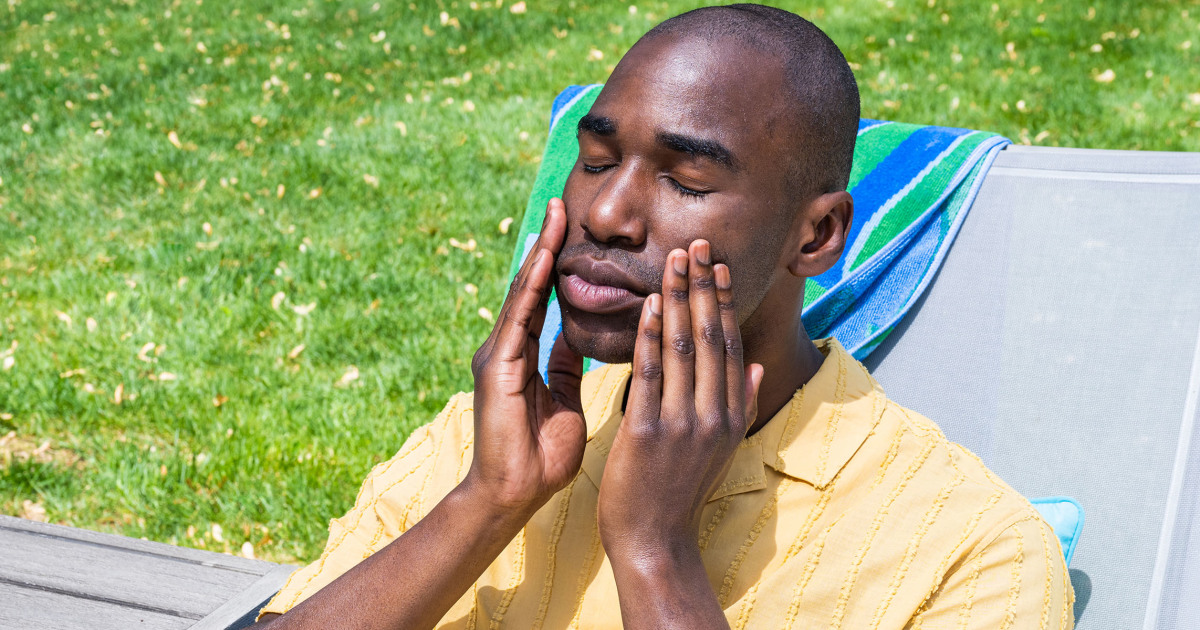


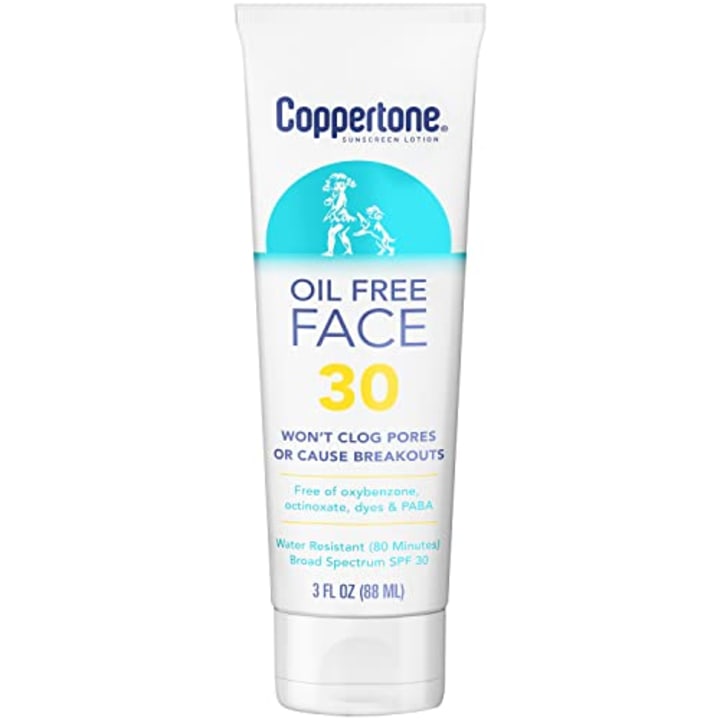
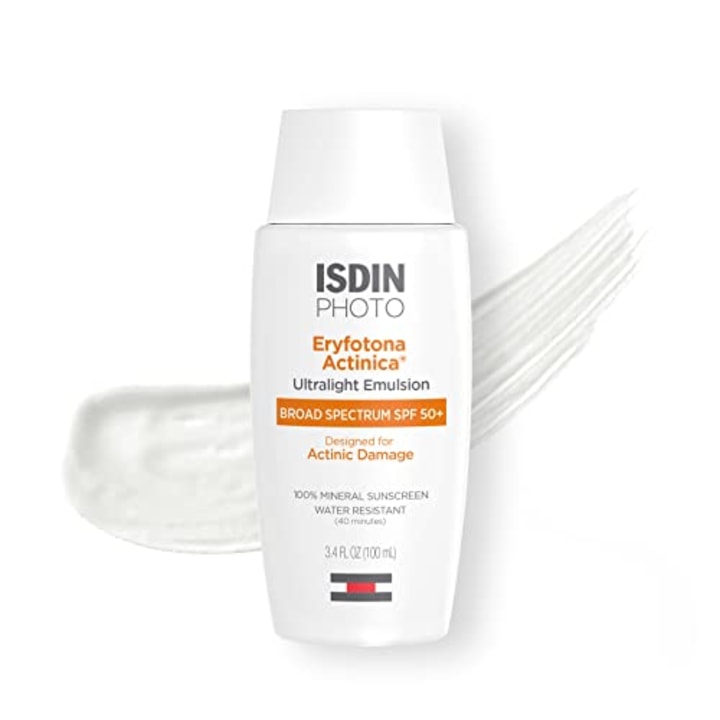
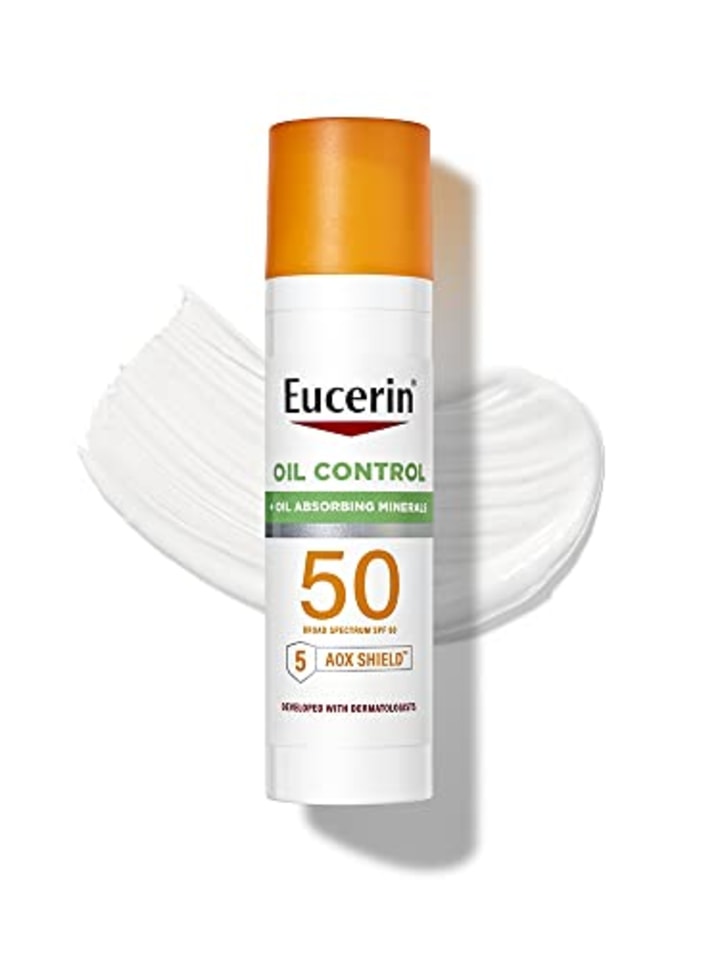
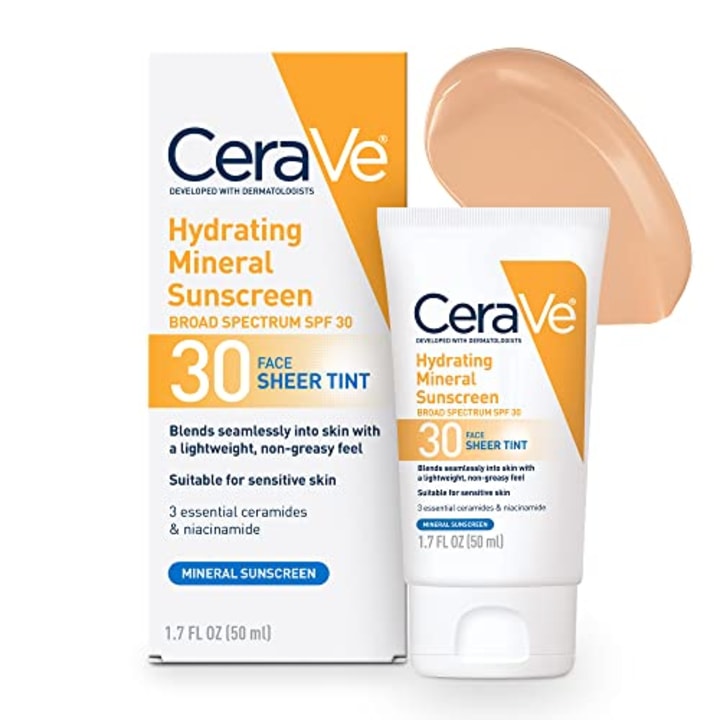
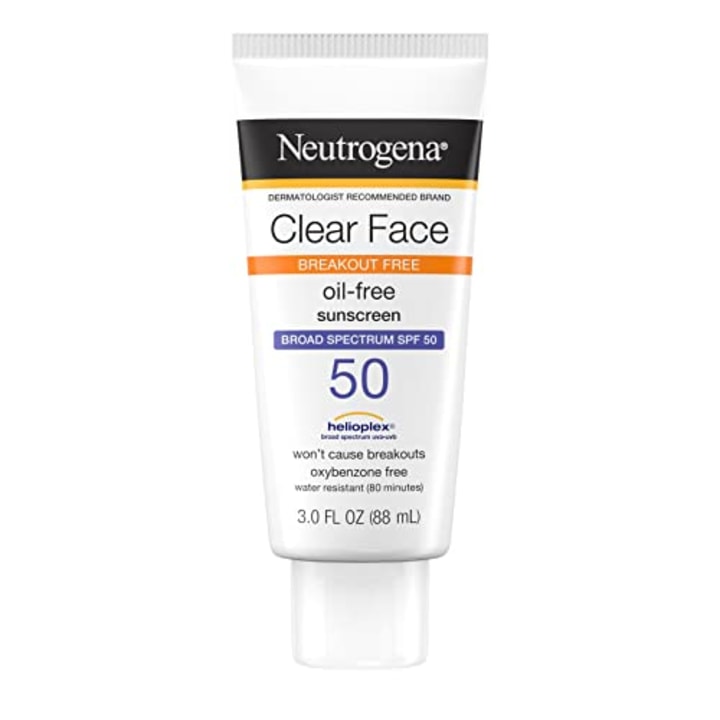
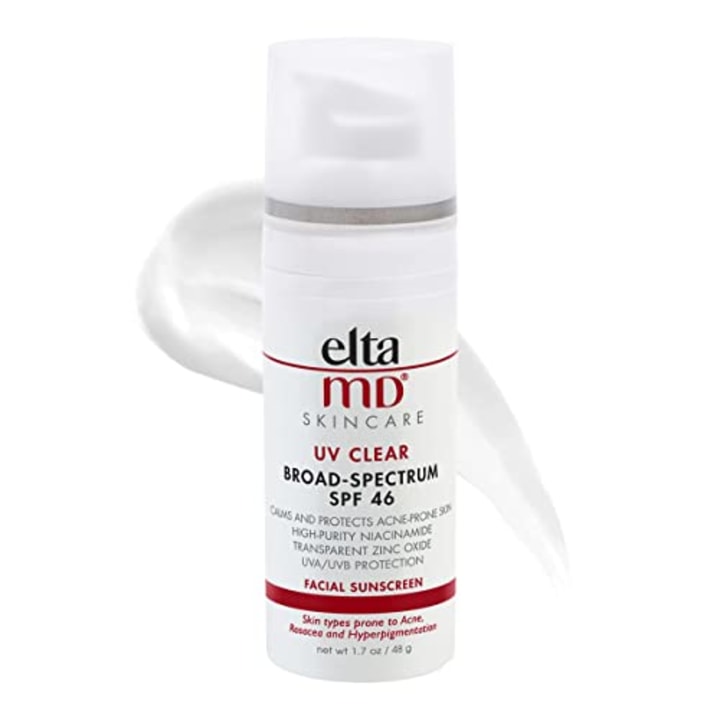
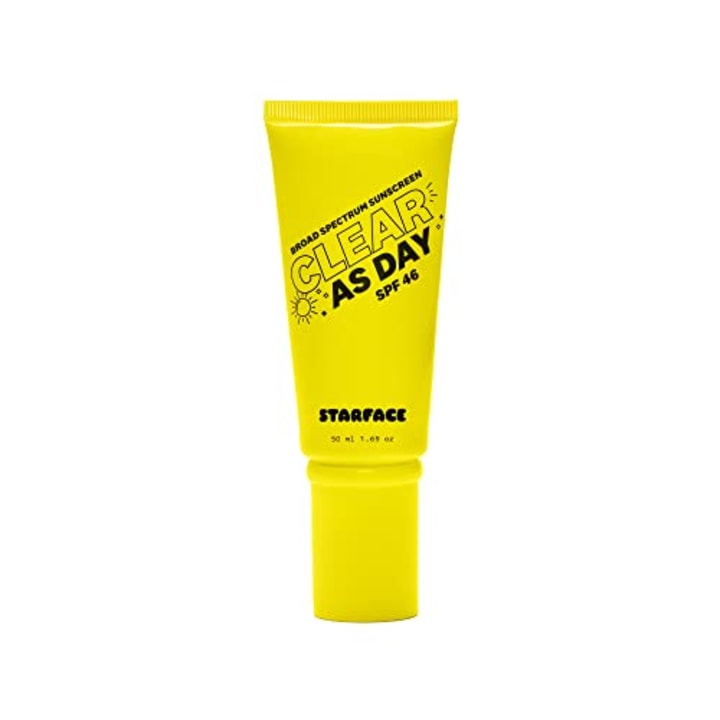
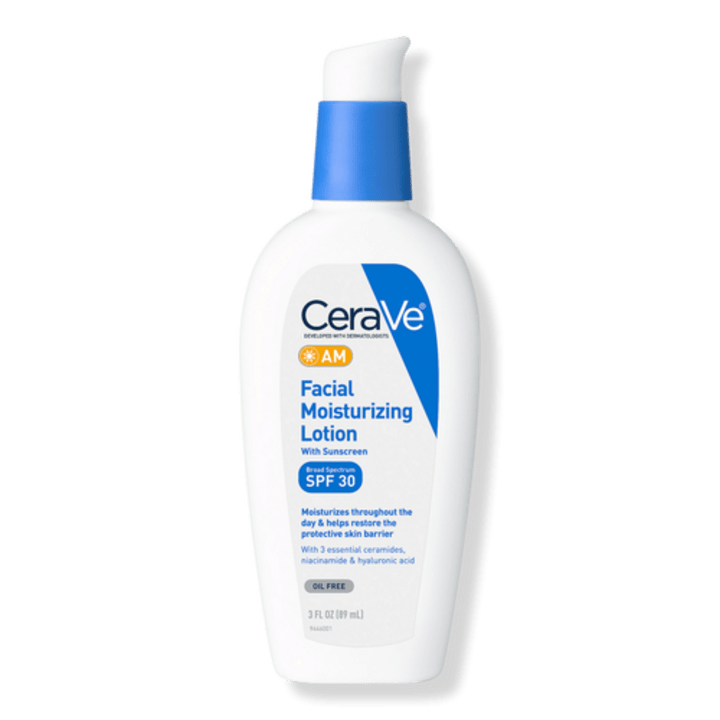
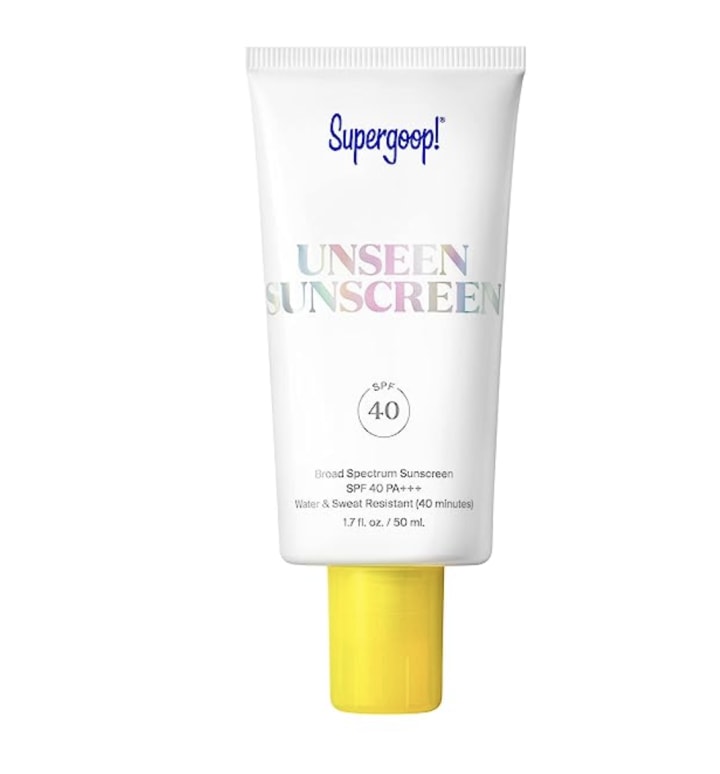
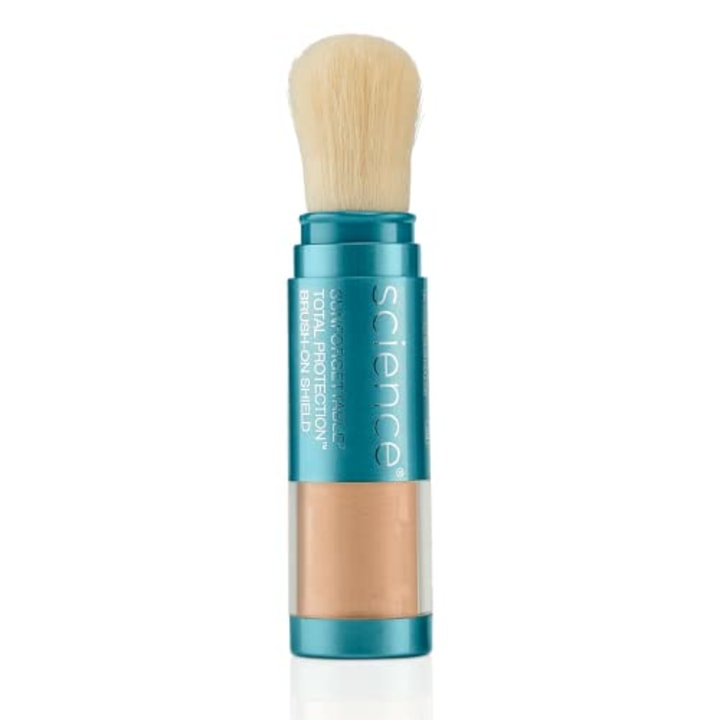
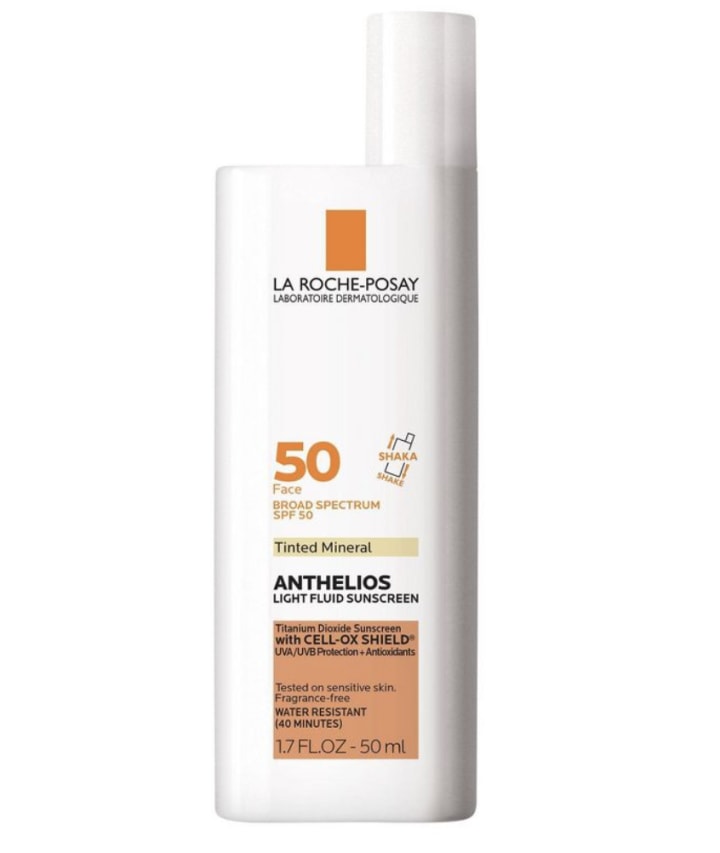
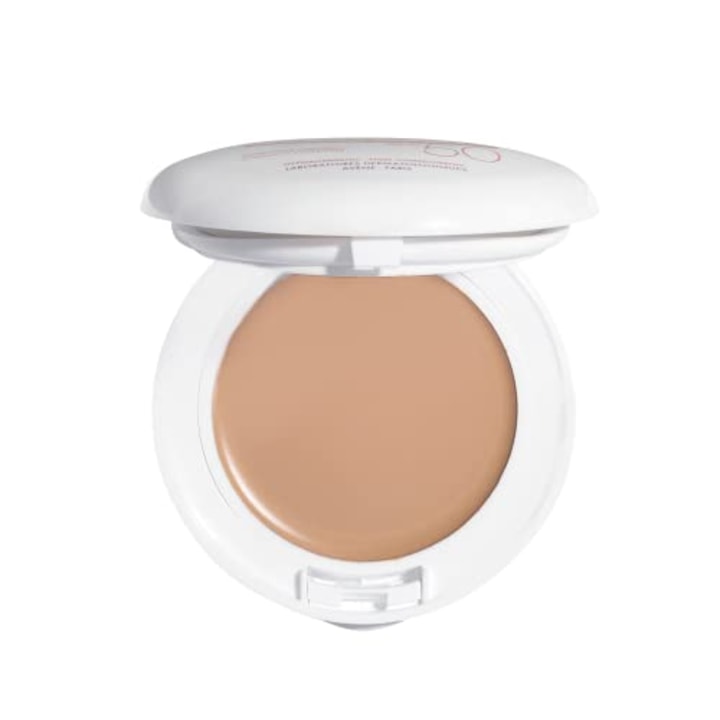
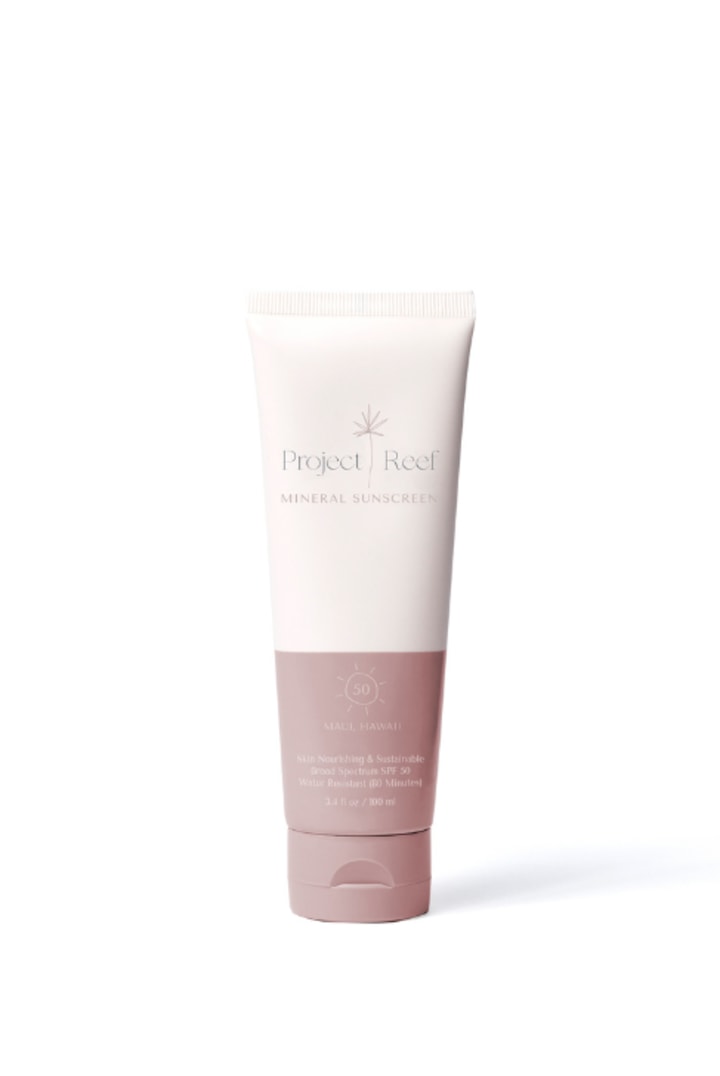
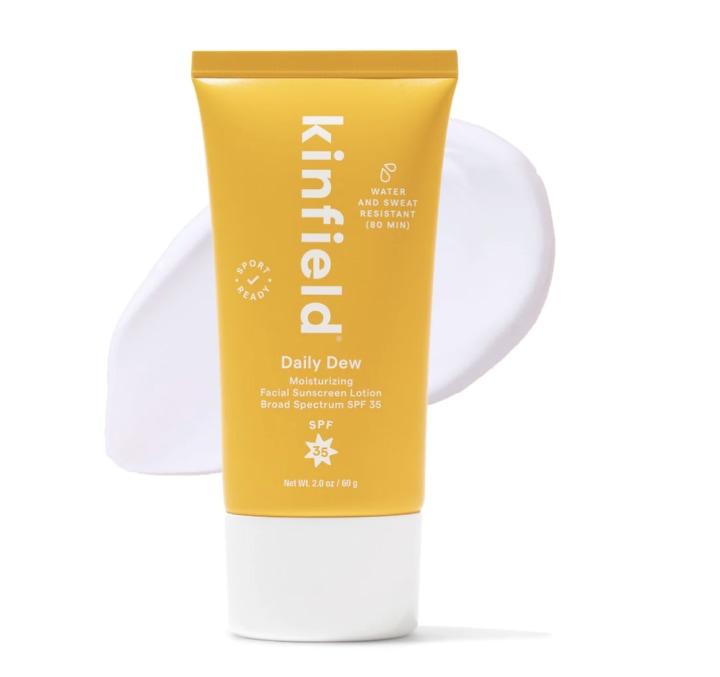
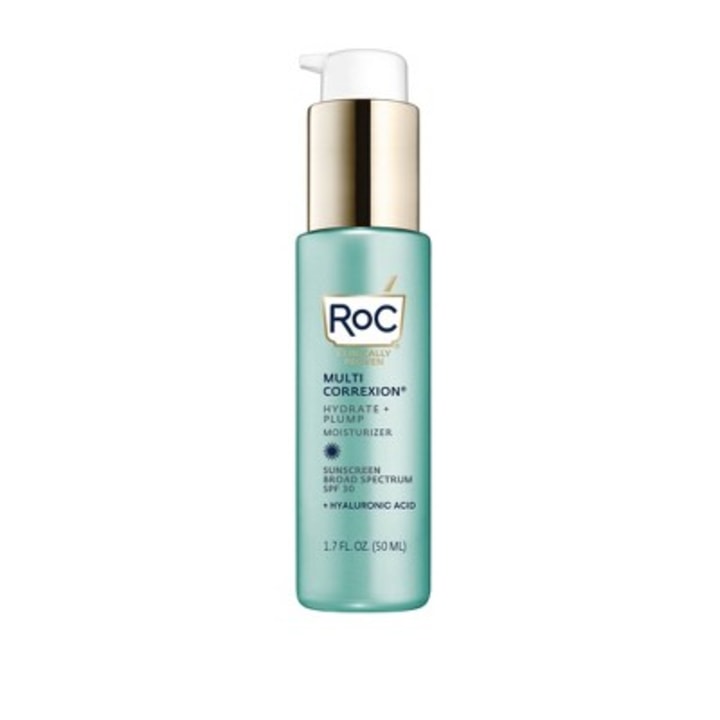

:quality(85):upscale()/2024/06/14/768/n/1922153/14136303666c7d32e7f763.98111055_.webp)
:quality(85):upscale()/2024/05/23/037/n/1922153/65236114664fd6f450b591.30146983_.jpg)
:quality(85):upscale()/2024/06/25/749/n/1922153/9c7e5d90667af757ed9f08.90369962_.jpg)
:quality(85):upscale()/2023/05/03/963/n/1922153/ed3523e66452db2bf2b5c8.62296175_.png)



